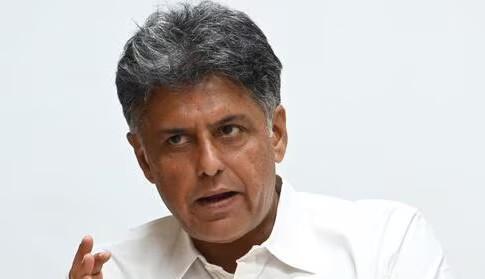
Against Constitution: Tewari on bills to remove jailed PM, CMs
Recently, Union Minister Amit Shah presented three bills in Parliament aimed at removing Prime Ministers, Chief Ministers, and Ministers facing serious criminal charges from their respective positions. However, Congress MP Manish Tewari has vehemently opposed these bills, terming them as a threat to the basic structure of the Indian Constitution.
According to Tewari, the Indian Constitution is clear on the principle of “innocent until proven guilty”. He asserted that these bills would undermine this fundamental right and pave the way for the misuse of state instrumentalities.
Tewari’s concerns are not unfounded. The three bills presented by Union Minister Amit Shah – the Constitution (Amendment) Bill, 2023, the Representation of the People (Amendment) Bill, 2023, and the Prevention of Corruption (Amendment) Bill, 2023 – seek to amend the Constitution to enable the removal of Prime Ministers, Chief Ministers, and Ministers from office if they are facing serious criminal charges.
While the intention behind these bills may be to prevent individuals with criminal backgrounds from holding public office, Tewari argues that the potential for misuse is enormous. He points out that the bills do not provide any safeguards to prevent the misuse of these provisions, and that they could be used to target political opponents or individuals who are critical of the government.
Tewari’s concerns are echoed by many legal experts who have expressed similar reservations about the bills. They argue that the bills infringe upon the fundamental rights of individuals and are a departure from the principles of natural justice.
One of the main concerns about these bills is the lack of a clear definition of what constitutes “serious criminal charges”. This has raised fears that the bills could be used to target individuals who are facing minor charges or who are being prosecuted for political reasons.
Furthermore, the bills do not provide any mechanism for an independent inquiry or investigation before an individual is removed from office. This has raised concerns about the potential for political interference and the misuse of these provisions.
Tewari also pointed out that the bills do not provide any safeguards to prevent the misuse of state instrumentalities. He argued that these provisions could be used to target individuals who are critical of the government or who are advocating for social and political change.
In conclusion, while the intention behind these bills may be to prevent individuals with criminal backgrounds from holding public office, the potential for misuse is enormous. The bills do not provide any safeguards to prevent the misuse of these provisions, and they could be used to target political opponents or individuals who are critical of the government.
As a nation, we must be cautious in our pursuit of justice and ensure that we do not compromise our fundamental rights and freedoms. We must also ensure that our laws and institutions are fair, impartial, and just.
In the end, it is the responsibility of our elected representatives to uphold the Constitution and protect the rights and freedoms of all citizens. It is our duty to hold them accountable and ensure that they are acting in the best interests of the nation.






